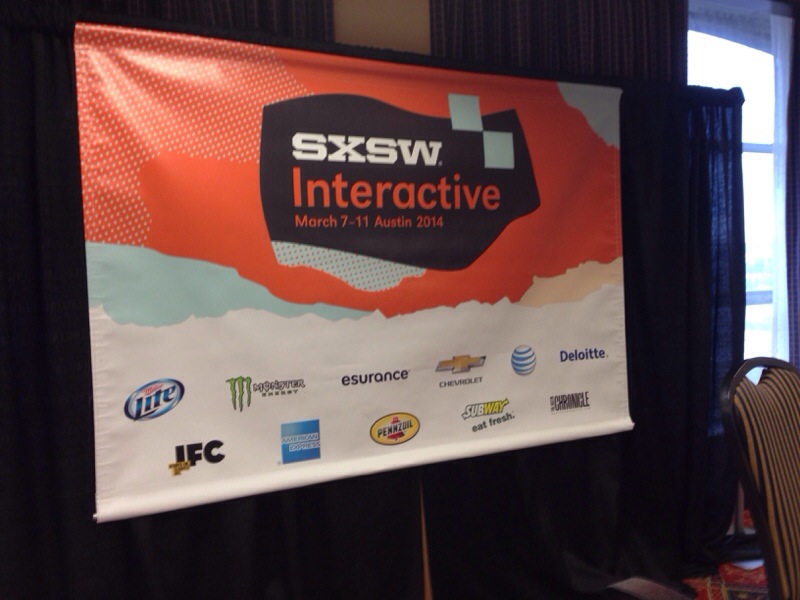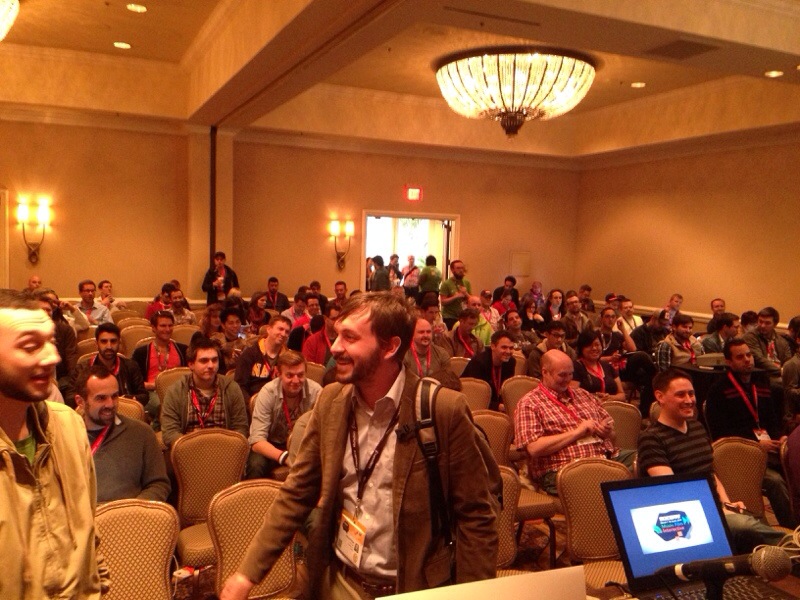Now that I’ve been home for a month, I’m ready to write up my thoughts on my first time attending the South by Southwest Interactive festival in Austin, TX.
Art & Logic has had a presence at SXSW before (conveniently, we have a few account managers who live in Austin, so it was easy), but this was the first time that we’ve attended it aggressively. We had a booth on the trade show floor, and took part in a panel discussion on the topic of estimating software projects — our Joshua Philips (pictured below, looking rugged and cool) moderated the panel, and I was a panelist along with Trevor Kale from Springbox in Austin, and Deb Hanamura from Metia’s Seattle office.
All of us on the panel were surprised to walk into the room 15 minutes before start time and find the room already almost at capacity; by the time we started, there were only a handful of empty seats. It appears that estimation is a problem that many of us struggle with. Personally, I learned many things from the other panelists — I’ve worked my entire career creating software products, and both Springbox and Metia are digital agencies, which has always seemed like a very different world from the one that I’m used to. I’ve never felt like I had a very solid grasp on the differences, but toward the end of the panel I settled on the idea that the work that I’m used to doing is my clients’ business, where the work that an agency does is about their clients’ business. I’m sure one doesn’t have to look too closely to find places where that heuristic doesn’t hold up, but I think it’s useful as a first-order approximation, at least.
You can hear the panel discussion in its entirety here: [soundcloud]https://soundcloud.com/officialsxsw/project-estimation-3-firms#t=0:00[/soundcloud]
The best part of doing the panel is that it was scheduled on the very first day, so I had the rest of the event free without the stress and nerves of knowing that the panel was in front of me (which would have only been worse after attending some other panels — the quality of every panel that I attended would have set an unattainable bar in my mind, so I’m glad that I didn’t know what to expect from the rest of the festival).
Almost all of the panels I attended had organized Q&A sessions toward the end, and I invented a new rule for myself — I had to be able to come up with and ask a good question if the opportunity was offered. My logic here: if I couldn’t come up with a good and useful question after listening to 30 or 40 minutes of a presentation, I either wasn’t paying attention, or I had picked a bad session to have attended.
The most frustrating thing about SXSW was that there was too much going on at once — in general, at any given moment there were between 3-5 panels or sessions that I really wanted to attend, and the option overload was fatiguing. If you’re going to have a problem as a festival organizer, I guess that’s the best possible one that you can have.
My task for the rest of the year: convince The Powers That Be that I need to attend SXSW 2015.




